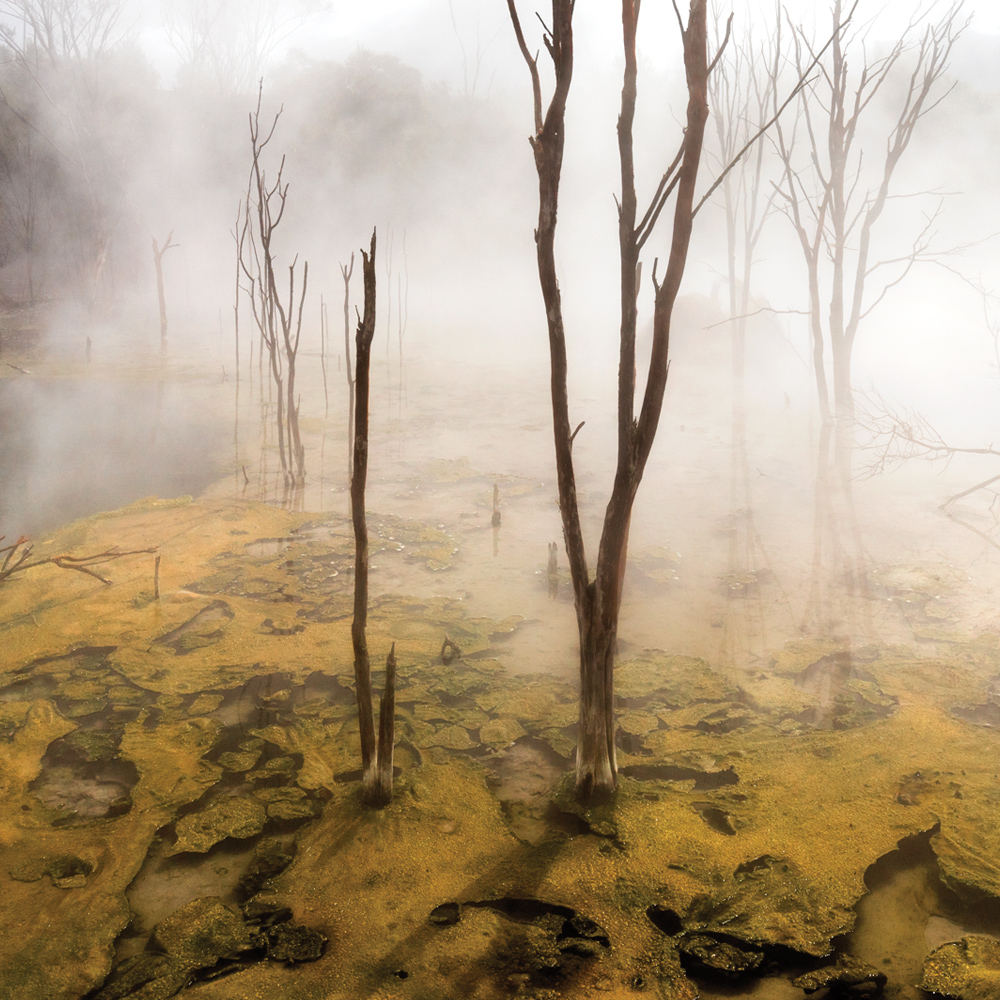steem fog | /stim fɒg/

Drifting banks of fog can bring an aura of mystery to even the most mundane of landscapes – even places we know well can take on an uncanny air. In precarious environments like mountains, fog can be positively menacing – our alertness ratcheting up to compensate for the unnerving disorientation. Adding to this sense of disquiet, the arrival of fog is usually accompanied by a distinct chilling of the air – unless it’s a steam fog.
Steam fogs are often confused with the advection fogs typical of places where relatively warm air moves out over cooler water such as the western seaboard of the Americas. Steam fogs form in the inverse of these conditions when vapour evaporates from relatively warm water into colder air and then rapidly condenses. Steam fogs are often seen over lakes and rivers on cold autumn mornings – the denser water having been slower to cool than the night air. They’re also a common feature of hot springs. In the photo opposite, steam fog conspires with the eerie snags and primordial algae to give the impression of a remote, alien wilderness. The location is actually an urban park close to the centre of Rotorua, a tourist town situated on New Zealand’s Volcanic Plateau – just beyond the trees in the background lay a road busy with lunchtime traffic.
Steam fog is also a feature of the polar regions where it may be referred to as sea smoke or steam mist. It’s commonly confused with ice fog – however, steam fog remains a liquid rather than a crystal. That said, at around -29°C, it may freeze to form a pseudo ice fog composed of extremely small ice particles called frost smoke.
Introduction Aeolian Alpenglow
Benthos Crepuscular Crispate Crown shyness
Desire lines Dreich Endragoned Edgelands
Frondescence Fumarole Gluggaveður Gossamer
Karst Komorebi Lawrence Long acre
Machair Monkey’s wedding Moonglade
Psithurism Quartz Rakuyou Roaring forties
Snag Soft estate Specular, diffuse and pellucid
Spoondrift Steam fog Swash zone Sylvan
Tellurian and thalassic Terracettes Uliginous